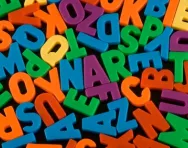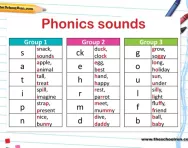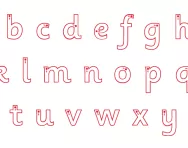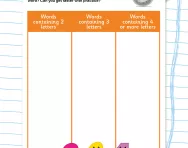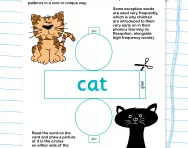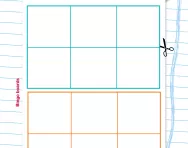Important update from TheSchoolRun
For the past 13 years, TheSchoolRun has been run by a small team of mums working from home, dedicated to providing quality educational resources to primary school parents. Unfortunately, rising supplier costs and falling revenue have made it impossible for us to continue operating, and we’ve had to make the difficult decision to close. The good news: We’ve arranged for another educational provider to take over many of our resources. These will be hosted on a new portal, where the content will be updated and expanded to support your child’s learning.
What this means for subscribers:
- Your subscription is still active, and for now, you can keep using the website as normal — just log in with your usual details to access all our articles and resources*.
- In a few months, all resources will move to the new portal. You’ll continue to have access there until your subscription ends. We’ll send you full details nearer the time.
- As a thank you for your support, we’ll also be sending you 16 primary school eBooks (worth £108.84) to download and keep.
A few changes to be aware of:
- The Learning Journey weekly email has ended, but your child’s plan will still be updated on your dashboard each Monday. Just log in to see the recommended worksheets.
- The 11+ weekly emails have now ended. We sent you all the remaining emails in the series at the end of March — please check your inbox (and spam folder) if you haven’t seen them. You can also follow the full programme here: 11+ Learning Journey.
If you have any questions, please contact us at [email protected]. Thank you for being part of our journey it’s been a privilege to support your family’s learning.
*If you need to reset your password, it will still work as usual. Please check your spam folder if the reset email doesn’t appear in your inbox.
What are exception words?

What are common exception words or tricky words?
Exception words are words in which the English spelling code works in an unusual or uncommon way. They are not words for which phonics 'doesn't work', but they may be exceptions to spelling rules, or words which use a particular combination of letters to represent sound patterns in a rare or unique way.
Exception words are also referred to as tricky words or sight words.
Some exception words are used very frequently, which is why children are introduced to them very early on in their phonics learning (in Reception, alongside high frequency words, and in Key Stage 1).
How are common exception words taught in Y1 and Y2?
English has a complex spelling system in which the same letter (or letters) can be used to represent different sounds and the same sound can be represented by different letters.
As children learn to read within a structured phonics method all these different phoneme (spoken unit of sound) and grapheme (the written symbol that represents a sound) correspondences are explained, and the 2014 English curriculum has set out the various spelling rules (and exception words) that need to be learnt by children in each year of their primary education.
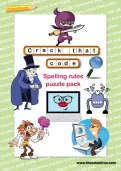
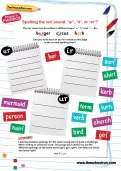
Claim FREE Spelling Resources Today
- Spelling workbooks
- Step-by-step programme
- Spelling test packs
- 100s of worksheets & games
Examples of exception rules are:
Year 1
- Children learn that the 's' sound after a short vowel is usually represented by 'ss', however 'bus' is an exception to this.
- The word 'school' has a 'ch' in it but makes a sound like 'k', it is therefore an exception word as it does not follow the phonic rules children will have been taught so far.
Year 2
- When you add the suffix -ing / -er /-ed to a root word, if that word has a short vowel and one consonant, the consonant needs to be doubled (for example, pat becomes patting). An exception to this is words ending in x: mix - mixing, box - boxer.
- The word 'sugar' is an exception word because it starts with an 's' but is pronounced /sh/.
Examples of exception words are:
Year 1
the, a, do, to, today, of, said, says, are, were, was, is, his, has, I, you, your, they, be, he, me, she, we, no, go, so, by, my, here, there, where, love, come, some, one, once, ask, friend, school, put, push, pull, full, house, our – and/or other words, depending on the phonics learning programme used in your child's school
Year 2
door, floor, poor, because, find, kind, mind, behind, child, children*, wild, climb, most, only, both, old, cold, gold, hold, told, every, everybody, even, great, break, steak, pretty, beautiful, after, fast, last, past, father, class, grass, pass, plant, path, bath, hour, move, prove, improve, sure, sugar, eye, could, should, would, who, whole, any, many, clothes, busy, people, water, again, half, money, Mr, Mrs, parents, Christmas – and/or other words, depending on the phonics learning programme used in your child's school
How are children taught exception words?
The number and order of exception words your child will be taught will vary according to the phonics programme being used in their school. Also, some English words are exceptions in some regional accents but not in others.
In the classroom practical strategies will often be used to introduce children to specific groups of exception words.
Download free exception words flashcards
Help your child practise reading and writing exception words with our flashcards, free to download.
How children learn to read using phonics: a parent's guide
Understand more about how children are taught to read with our step-by-step parents' guide to phonics teaching.
More advice, information and practical resources to help primary-school children with phonics and reading are available on our subject hub page.





